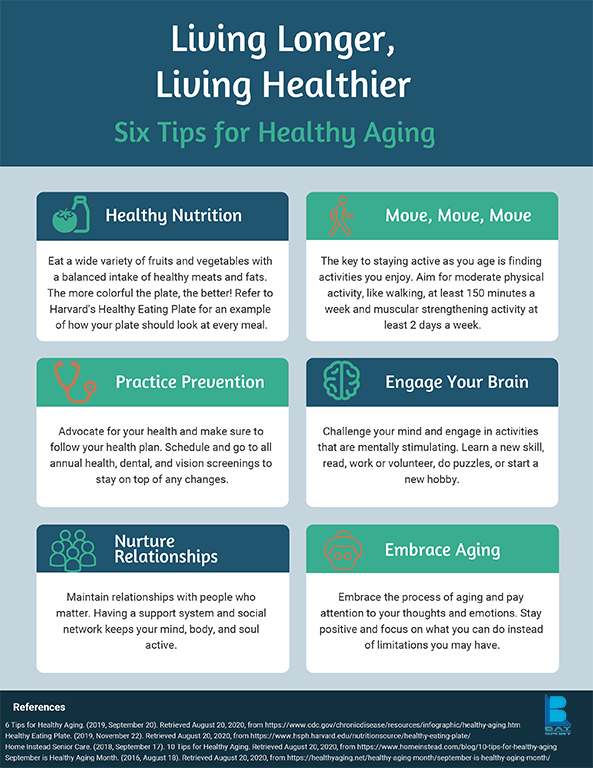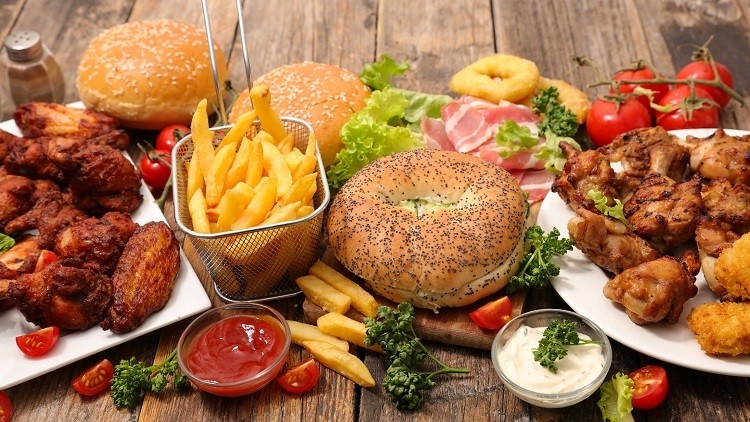
You can have many reasons to keep your weight healthy. It could be a medical emergency, a lack in energy to enjoy your grandchildren, or anything else. No matter what reason it may be, you should set a goal that is meaningful for your body and health. It's not easy to attain your ideal weight. But you will be surprised at the many benefits. Keep reading to discover the best ways to keep a healthy body weight.
Every person has a different definition of healthy weight. You can use a body mass index (BMI) or waist circumference to get an idea of your ideal weight. Your activity level will be considered by your healthcare provider. A healthy diet and regular exercise will help to reduce the risk of many diseases. A healthy weight plan will help you avoid many infections and accidents.

According to the Physical Activity Guidelines for Americans, you should get 150 minutes of moderate-to vigorous exercise each week. Two days a weeks should be dedicated for strength-training. A series of three webinars is offered by ASN to help you understand the science behind the new guidelines, and how they could impact your health. For more information about the latest recommendations, check out the Nutrition Source website. If you want to learn more about the health benefits of exercising, be sure to sign up for their newsletter.
Regardless of your age or gender, you can still find yourself in a healthy weight range. Many people have large midsections with a healthy BMI. Your healthy weight will depend on your height, age, muscle mass, and other factors. Another helpful method to calculate your ideal bodyweight is the waist-to hip ratio. You must also dispel the myths around what constitutes a healthy body weight if you want to live an active, healthy life.
Your height and body composition will dictate the healthy weight ranges for women and men. There is no one "healthy" weight, but the BMI is a guideline for determining a healthy weight. Despite what people think, many people have an unhealthy weight, but it depends on your body type, height, and lifestyle. Your body fat is measured by your BMI. A high-fat individual may be at higher risk for developing heart disease than someone with a lower body weight.

To determine a healthy weight, both your mind as well as your body must be considered. The body mass index and your waist circumference can help you identify if you are at high risk of type 2 diabetes, heart disease and stroke. Stress and your mental state can also impact healthy weight. However, the CDC suggests that you focus on the CDC's website as well as its social media pages.
FAQ
What is the best way to eat?
There are many factors that influence the best diet, including your gender, age, weight, health condition, lifestyle, and personal preferences. Consider how much energy and low-calorie foods you consume, as well as whether or not you are a fan of fruits and vegetables.
If you are trying to lose weight, then you may want to try intermittent fasting. Intermittent Fasting means that you eat only specific meals throughout your day and not three large meals. This might be better for you than traditional diets, which have daily calorie counts.
Studies have shown that intermittent fasting can improve insulin sensitivity and decrease inflammation. This could lead to improved blood sugar levels, and a lower risk of developing diabetes. Other research suggests that intermittent fasting may promote fat loss and improve overall body composition.
How can I live the best life possible every day?
Finding out what makes your heart happy is the first step to living a fulfilled life. Once you know what makes you happy, you can work backwards from there. You can also inquire about the lives of others.
You can also read books like "How to Live Your Best Life" by Dr. Wayne Dyer. He talks about finding happiness and fulfillment in all aspects of our lives.
How can I control my blood pressure?
You must first determine the cause of high blood pressure. Then you need to take steps to reduce this cause. This could be as simple as eating less salt, losing weight, taking medications, etc.
Make sure you're getting enough exercise. Walking is a great alternative if you don't have the time or energy to exercise regularly.
If you're unhappy with the amount of exercise you do, you might consider joining a fitness club. A gym that has other members who are motivated by your goals will be a good choice. You will find it easier to keep to a workout schedule if you have someone to watch you at the gym.
How does an antibiotic work?
Antibiotics can be used to kill bacteria. The treatment of bacterial infections is done with antibiotics. There are many types and brands of antibiotics. Some are taken orally, some are injected, and others are applied topically.
Many people who have been exposed can be prescribed antibiotics. One example is if someone has had chickenpox and wants to prevent shingles. An injection of penicillin may be necessary to prevent pneumonia if someone has strep.
If antibiotics are to be administered to children, they must be prescribed by a doctor. Children are at greater risk of developing side effects from antibiotics than adults.
Diarrhea is one of the most common side effects of antibiotics. Other side effects that could occur include nausea, vomiting and dizziness. These side effects usually disappear once treatment has ended.
Exercise: Is it good or bad for immunity?
Exercise is good for your immune system. Your body creates white blood cells when you exercise that fight infection. Your body also eliminates toxins. Exercise is a great way to prevent heart disease, cancer, and other diseases. Exercise also helps to reduce stress levels.
However, exercising too much can weaken your immune system. Your muscles can become sore if you exercise too much. This can cause inflammation and swelling. Your body then has to produce more antibodies to fight off infection. Problem is, extra antibodies can trigger allergies and other autoimmune conditions.
So, don't overdo it!
Why does weight change as we age?
How do you know if your bodyweight changes?
Weight loss happens when there is less muscle mass and more fat. This means that the amount of calories consumed must exceed the amount of energy used daily. A decreased level of activity is the main cause of weight loss. Other factors include stress, illness and pregnancy. Weight gain occurs when there is more fat than muscle mass. It happens when people eat more calories than they use during a given day. Common reasons include overeating, increased physical activity, and hormonal changes.
Our bodies lose weight because we eat fewer calories than we burn. By exercising regularly, our metabolism rates increase which in turn burns more calories during the day. This doesn't necessarily mean we will lose weight. What matters is whether we are losing fat or building muscle. If we are burning more calories than what we eat, then we will lose weight. But if we're consuming more calories than we're burning, then we're actually storing them as fat.
As we age, our ability to move around is slower and we are less mobile. We also tend to consume less food than when we were younger. This is why we tend to gain weight. On the flipside, we are more muscular than we really need and appear bigger.
If you don't weigh yourself every week, it's impossible to determine how much weight has been lost. There are many options for measuring your weight. You can also measure your waist, hips or thighs. Some prefer to use the bathroom scales, others prefer to use tape measures.
To track your progress, weigh yourself once a week. Measure your waistline once per month. You can also take pictures of yourself every few months to see how far you've come.
You can also find out how much you weigh by looking up your height and weight online. For example, if you're 5'10" tall and weigh 180 pounds, you'd probably weigh 180 pounds.
What is the difference between a calorie or a kilocalorie.
Calories refer to units that are used for measuring the energy in food. Calories is the unit of measurement. One calorie represents the energy required to raise one gram of water's temperature by one degree Celsius.
Kilocalories are another term for calories. Kilocalories are expressed in thousandths (or a calorie). 1000 calories, for example, equals one kilocalorie.
Statistics
- WHO recommends consuming less than 5% of total energy intake for additional health benefits. (who.int)
- In both adults and children, the intake of free sugars should be reduced to less than 10% of total energy intake. (who.int)
- Extra virgin olive oil may benefit heart health, as people who consume it have a lower risk for dying from heart attacks and strokes according to some evidence (57Trusted Source (healthline.com)
- According to the 2020 Dietary Guidelines for Americans, a balanced diet high in fruits and vegetables, lean protein, low-fat dairy and whole grains is needed for optimal energy. (mayoclinichealthsystem.org)
External Links
How To
27 Steps for a healthy lifestyle even if your family buys junk food
Cooking at home is the best way to eat well. However, this is often difficult because people do not know how to prepare healthy meals. This article will help you make healthier choices while dining out.
-
Look for restaurants that offer healthy choices.
-
Before ordering meat dishes, order salads and other vegetables.
-
Ask for sauces that aren't sweetened.
-
Avoid fried food.
-
Grilled meats are better than fried.
-
Do not order dessert unless you really need it.
-
You should always have something to eat after your dinner.
-
Eat slowly and chew thoroughly.
-
Eat water.
-
Do not skip breakfast or lunch.
-
Fruits and vegetables are a great addition to every meal.
-
Use milk, not soda.
-
Avoid sugary drinks
-
Reduce salt intake.
-
You should limit how often you visit fast food restaurants.
-
If temptation is too strong for you, invite someone to be your friend.
-
You should not allow your kids to watch too many TV programs.
-
Keep the television off during meals.
-
Avoid energy drinks
-
Take regular breaks from work.
-
Exercise early in the morning.
-
Every day, exercise.
-
Start small and increase your knowledge slowly.
-
Realistic goals are important.
-
Be patient.
-
Even if you don’t feel like exercising, make time for it.
-
Use positive thinking.